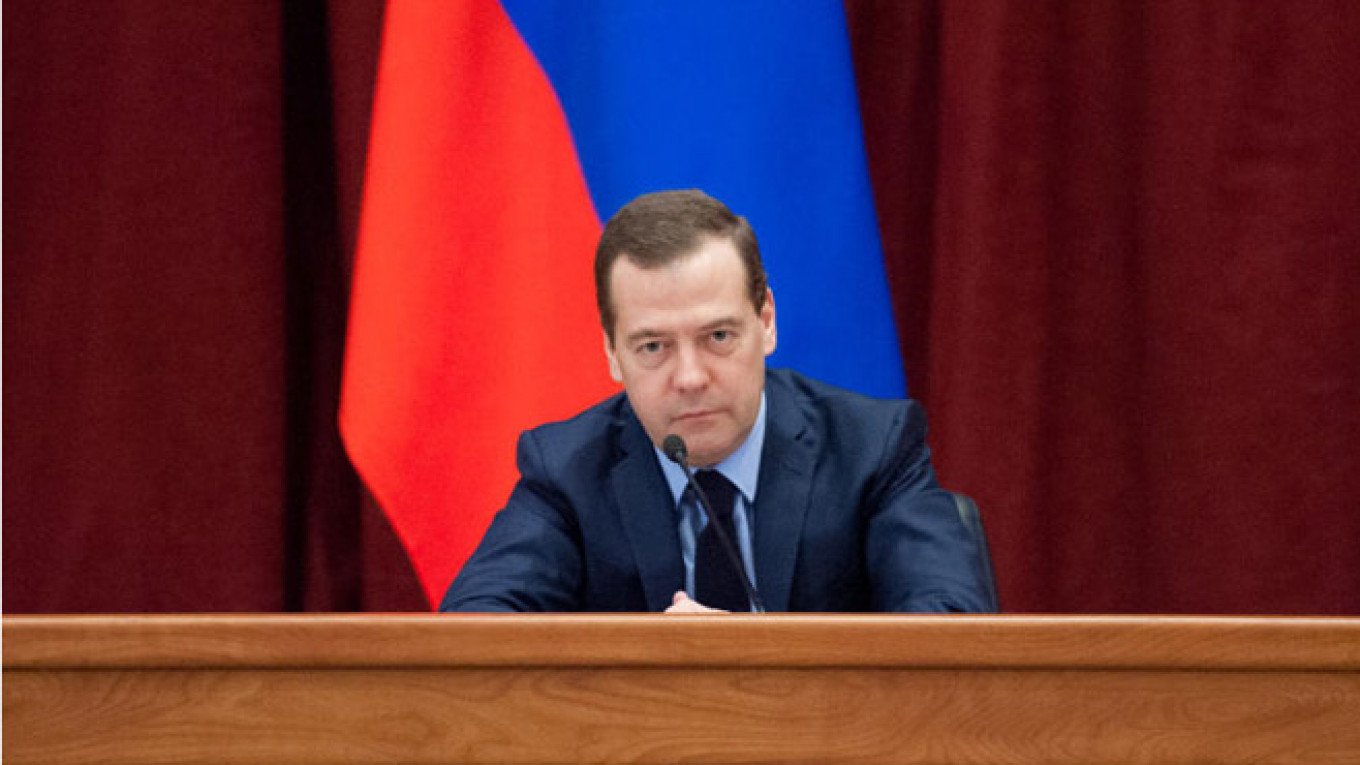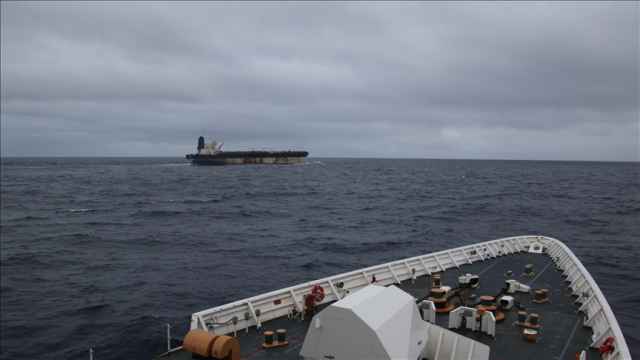Russia would adopt a tough position if Ukraine decided not to pay off debts owed to Moscow by its previous government, Russian Prime Minister Dmitry Medvedev said in an interview broadcast by Russian television on Saturday.
Russia has spoken out against a new Ukrainian law allowing a moratorium on foreign debt repayments, threatening to take Ukraine to court if it fails to repay $3 billion that Russia lent it in 2013.
In his interview, Medvedev called the new law "contradictory."
"Probably they are talking about private debts, but at the same time they are hinting that they aren't prepared to pay off the debts of the [former Ukrainian president Viktor] Yanukovych government," Medvedev said.
"If it is actually formulated in this way this would undoubtedly be a default of Ukraine … We would adopt as tough a position as possible in this case and defend our national interests," Medvedev told the Vesti program on Saturday on state television channel Rossia.
He added that any such refusal would "undoubtedly influence the process of their agreement with the International Monetary Fund" — a seeming reference to IMF rules that require financial assistance recipients to honor debts to other governments.
Medvedev also said that Russia was "not indifferent" to debts owed by Ukraine to private Russian creditors, as the bulk of these debts are owed to banks with state ownership.
"We will collect [the debts]," Medvedev said. "Banks will use all instruments that exist, including, naturally, judicial procedures," he said.
'Predictable' Ruble
Medvedev also said his government had an interest in seeing a predictable rate for the ruble, but he defended the Central Bank's policy of allowing the ruble to float, saying it was "optimal" to achieve a balance in the forex market between supply and demand.
Analysts have been speculating that the authorities are concerned the ruble has strengthened too much after the dollar fell below 50 rubles per dollar — a large rebound from the ruble's low of 80 in December.
Medvedev said the current exchange rate was "practically at the present moment the real value of the ruble." But he added: "Some economists consider that this is even excessive strengthening."
A Message from The Moscow Times:
Dear readers,
We are facing unprecedented challenges. Russia's Prosecutor General's Office has designated The Moscow Times as an "undesirable" organization, criminalizing our work and putting our staff at risk of prosecution. This follows our earlier unjust labeling as a "foreign agent."
These actions are direct attempts to silence independent journalism in Russia. The authorities claim our work "discredits the decisions of the Russian leadership." We see things differently: we strive to provide accurate, unbiased reporting on Russia.
We, the journalists of The Moscow Times, refuse to be silenced. But to continue our work, we need your help.
Your support, no matter how small, makes a world of difference. If you can, please support us monthly starting from just $2. It's quick to set up, and every contribution makes a significant impact.
By supporting The Moscow Times, you're defending open, independent journalism in the face of repression. Thank you for standing with us.
Remind me later.






